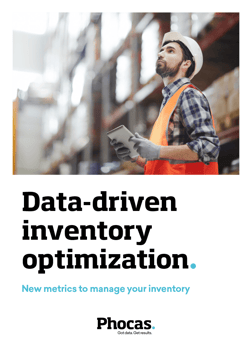Are you treating your data as an asset?

While most executives understand that their data is an asset, many haven’t harnessed the valuable insights accessible with a data analytics solution. The immense amount of data you generate may seem impossible to understand, but data analytics will transform it into clear, actionable information. Another way at looking at data, if you closed your doors tomorrow, what would the new owner be most interested in? – the products on your shelves or the insights into your customers?
Better understand your customers
Leveraging your data can help you better understand your customers. For instance, you can create robust customer profiles that include information such as sector, job title, geographical locations, channels they use, and preferences. Identify their purchasing behaviors such as what they are buying, what they aren’t, when, how often, in what quantity, and their lifetime value.
Understanding your customers enables your sales team to recognize new cross- and up-selling opportunities and recognize your top performing accounts. Knowing your best customers means you can reinforce those relationships by periodically rewarding them with a special promotion for products they like. Another benefit of analytics is the ability to identify when a customer is declining. By analyzing customer buying habits and visit frequency, your team can quickly detect a reduction in order frequency or volume, and make a sales call to find out if there is a problem.
Transactional data keeps an eye on product sales
Transactional data such as time, place, price, discount, and payment methods is generated at the point of sale. This data can help you measure the success of your various product lines. By analyzing your transactional data, you can tell you whether a product is gaining traction with your target customer base or it can reveal an unexpected dip in sales.
While it’s important to determine which products aren’t selling as expected, it’s equally important to identify the products with high conversion rates. It may be that the price point is too low, for example. Finally, your transactional data can help you identify trends such as seasonal buying patterns. Knowing when sales increase due to the season can help you better manage the trend. If you know that sales for a particular product line typically increase in October, you can prepare for this by adjusting your stock level to meet the upcoming rise in demand.
Be more strategic
Even though many companies have adopted data analytics to guide their decision making, many other companies still rely on traditional approaches. Without realizing it, this means they are a step behind their competition. On the other hand, companies that use a data analytics solution to extract the value from their data have greater success. A study from the MIT Center for Digital Business found that companies that adopt a data-driven culture have 4% higher productivity rates and 6% higher profits. Data-driven companies rely on hard, verifiable data to back up their decision-making rather than making decisions based on intuition and gut-alone. An analytics solution can show you where to strategically deploy your business resources so you can gain a competitive advantage.
Manage costs
A major business resource is your capital. Managing your costs enables you to make the most profitable investments. Data analytics can help you lower costs companywide. For instance, analytics can help you track shipments and optimize deliveries to lower your shipping costs. Your marketing team can use analytics trim marketing costs by creating targeted marketing campaigns and assessing their effectiveness. Finally, data analytics can help you improve employee performance and operational efficiencies across your various departments.
To remain competitive in our data-driven economy, your business decisions must be based on credible evidence rather than on subjective experience. Data analytics helps companies achieve their goals by identifying fact-based, actionable insights so executives can develop effective strategies for each area of the business.
For more information on how your future is with your data, click below to download our free eBook about staying competitive by turning data into results.

Empowering businesses with intuitive data analytics, driving informed decisions for growth and profitability. We make people feel good about data.

Essential KPIs every distribution company executive should measure
For mid-market leaders running a wholesale distribution business, data and business intelligence technology are crucial for monitoring financial and operational performance. However, the real value lies in how your team uses the data insights to influence decision-making.
Read more
How to prepare professional board reports
Preparing effective board reports cannot be underestimated. They’re not only essential for communicating financial performance and operational progress, but are also an all-important part of strategic and intelligent decision-making.
Read more
Financial statement analysis: what's changing?
Financial statements are scorecards for businesses, allowing the finance team to interpret and analyze financial performance.
Read more
We'll do the data wrangling, you do the analyzing
In today’s business world, we are faced with the constant struggle to bring our data into line. The sheer volume of data that businesses generate can be overwhelming to simply manage, never mind analyze. A survey by Phocas revealed that 60% of businesses identified ‘no expertise in-house,' and 33% said, ‘too much data to unravel' as the main obstacles that prevent them from breaking down data silos.
Read more
Find out how our platform gives you the visibility you need to get more done.
Get your demo today